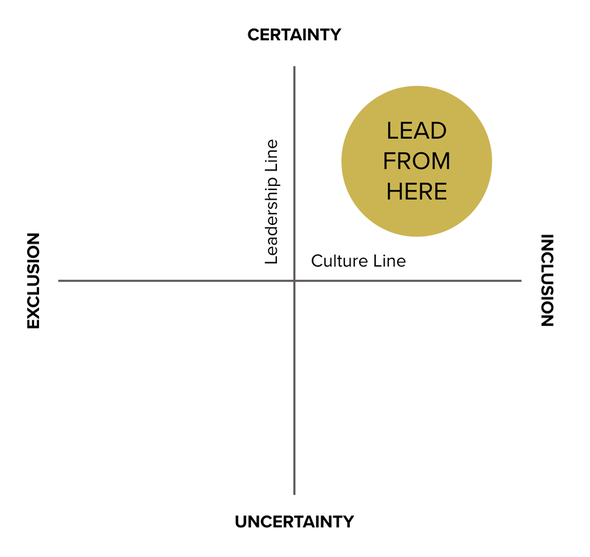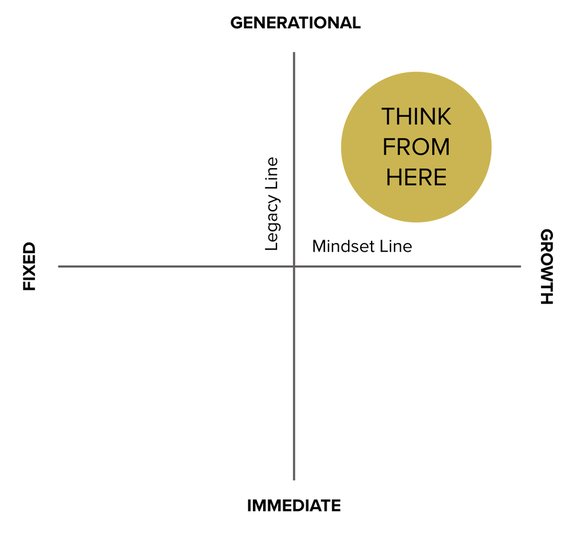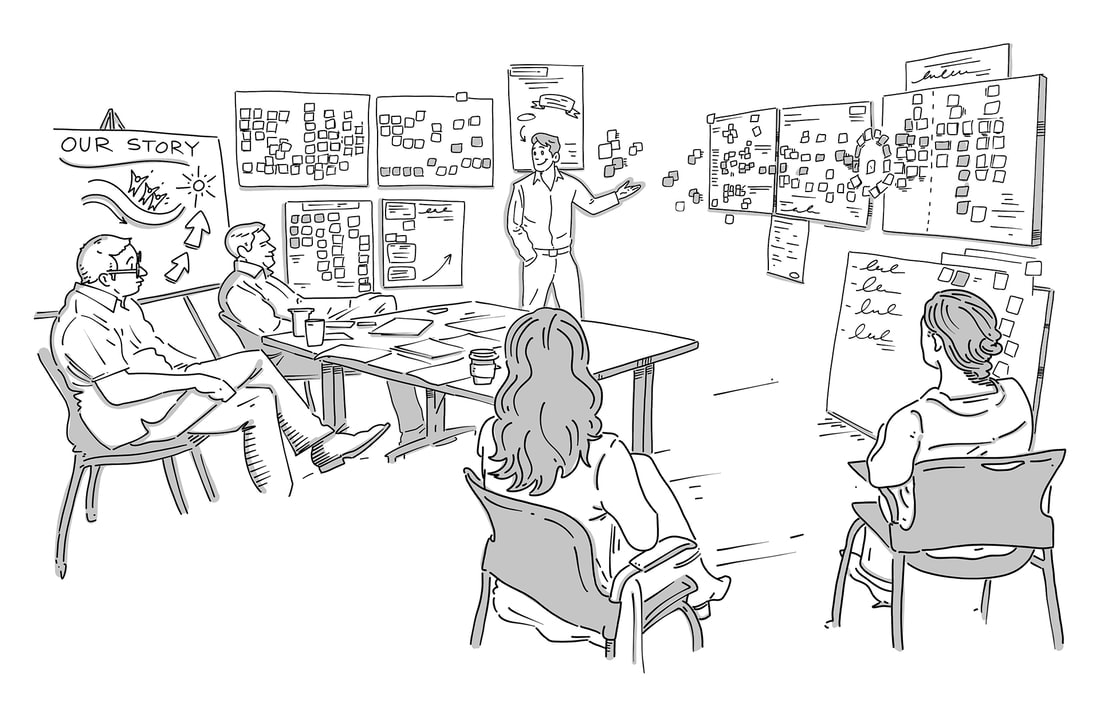|
According to the Wall Street Journal, WeWork CEO Sandeep Mathrani recently said that remote workers are less-than-engaged with the companies they work for. Mathrani’s conflict of interest here is staggering as his business model clearly depends on people leaving their homes. Then, Morgan Chase & Co.'s Jamie Dimon said remote work doesn’t work well “for those who want to hustle.” This contradicts a recent SHRM article which stated that:
You cannot tell me that remote workers don't have "hustle" or that they aren't committed. As I see it, there are only two downsides to an all-remote team. The first is losing physical touch and biofeedback loops created by being in the presence of others. The second is losing the opportunity for leadership's shitty ideas to go sour around the water cooler. Having that side conversation in the hallway or throwing some over-the-cubicle shade can be a necessary ingredient to determine viability and feasibility or to create stable bonds in the culture. CEOs leading in remote environments risk fabricating grim fairy tales of how work is going unless they are surrounded by the inputs and outputs of the team. I've seen CEOs make confident and horrible decisions despite the cost to culture and strategy. I've seen leaders get caught up in their own bubble and believe their own bullshit because no one would push back. I've seen entrepreneurs endlessly chase new and novel ideas, calling it "innovation." I've seen too many bosses mistake faith, loyalty or acquiescence for buy-in. Real alignment – real wisdom – is a matrix of legacy, mindset, certainty and inclusion. This is the mythical Zone of Genius. If you aren't leading from this place, you may very well destroy what you're building. The Leadership Line (Uncertainty → Certainty) Certainty in this case does not mean your personal confidence or optimism about your vision or the business’s prospects. On the flip side, I'm not talking about uncertainty in terms of futures, foresight or plausibility. I’m not saying that you should claim to know things you don’t. I'm talking about organizational uncertainty -- a lack of vision or transparency, poor communication, no line of sight into or across divisions, low team morale/confidence, lack of alignment around (or commitment to) OKRs, etc. Uncertainty in this sense is deeply felt and unmistakable. It makes the business (and those inside it) feel like they are floating on a loosely-bound raft, sure to drown at any moment. Leading with certainty lowers resistance to change because everyone has enough information, there is transparency in the planning and they are confident that you’re the leader that will take them there. The Culture Line (Exclusion → Inclusion) On one end of the culture line, team members are excluded, left out of rooms or conversations they feel are important, and kept in silos. An inclusive culture convenes the right voices around the table, puts the right people in the right seats, creates openness and psychological safety, and facilitates meaningful and productive dialogue among team members. An inclusive culture might look diverse or include different opinions or communication styles, but it always respects the individual and treats conflict as an opportunity for growth. The Mindset Line (Fixed → Growth)
In her 2008 book, Mindset, Carol Dweck wrote that people with a fixed mindset avoid challenges, give up easily, see effort as fruitless, ignore feedback and are threatened by the success of others. Those with a growth mindset embrace challenges, persist in the face of obstacles, see effort as the path to mastery, learn from criticism and find inspiration in others’ success. Great leaders view themselves and others with a growth mindset. An individual’s mindset varies wildly depending on what their mind is fixed upon. Being able to spot a fixed mindset is the key to loosening it up and allowing for growth. Notice when your beliefs are telling you that something or someone is “impossible.” Possibilities emerge when you quickly reframe negativity. The Legacy Line (Immediate → Generational) This line indicates the depth or complexity of your decision-making. On one end, we find immediate and short-term benefits to yourself, your reputation, or business. These are quick wins that yield small- to medium-sized returns. On the other end, we see decisions that take into consideration and may benefit the seventh generation and beyond. These decisions might be described as visionary, ethical, sustainable, or having a “long tail.” These require patience and deliver longer-term results, sometimes even beyond the lifespan of the founder.
0 Comments
From updating your strategy to scaling your team, growth is change and change is hard.
Visual Consulting (sometimes called Process Consulting)* is when a consultant is hired to visually “facilitate the organization to perceive, understand, and develop the organization’s business and human processes, in order for the client to improve the situation themselves, as they define it.” This differs from “Expert Consulting,” where the client has a perceived and predetermined need and a consultant is brought in to share their expertise related to that specific need. It is also different from “Pair-of-Hands Consulting” (or staff augmentation) where the consultant (or consulting team) is brought in to fulfill work that the client lacks the time or resources to deliver. Visual Consulting is about teaching the client to fish, not fishing for them, or selling them fancy fishing equipment. If you are experiencing the following, you may need someone to consult with on your vision, culture, story or strategy.
There are four things to look for when hiring a process consultant. 1. They are Process-Agnostic If a consultant tells you they have an out-of-the-box solution, don’t believe them. There is no one-size-fits-all remedy. There is no killer app in consulting. It is dynamic, empathy-based work that requires deep listening and should include the wisdom (and the elements that work) from different maps, models and methods. A good consultant should have a belief in human potential and a passion for building capacity on your team, regardless of what book they’re reading. 2. They Understand the Process of Change Look for a consultant that understands the positive and negative effects of change, what resistance to change looks like in individuals and groups, how to ease or work through that resistance, and ultimately, how to empower teams to lead themselves through change. If the change work (or creativity, or innovation) ends when the consultant leaves the room, they are not the right consultant for you. A good consultant strives to develop resilient, emotionally intelligent teams that are well-versed in the language of change and fire-tested in the crucible of transformation. 3. How They Do Anything is How They Do Everything Take notes on the sales/discovery call and their approach to setting boundaries and expectations. Notice the way they organize information and their attention to detail. This is exactly how they will engage with you (and possibly your clients). If they are late, rushing, scattered, forgetting things, their tone is too negative (or jarringly upbeat and positive) this is not a good sign. A good consultant matches your energy, makes you feel at ease, asks great questions, and sometimes provides clarity and answers before you can form the questions. 4. The Proof is in the Artifact They are a visual consultant, so look at their visuals. Are the final deliverables something that will be ready to share or distribute with your team/organization? Do they have visual impact? Will they be memorable or just another “dumb” report? The efforts and summary of your work should not only live on and easily shake hands with your implementation lead or strategic plan, but they should inform (or change) the way you tell your story -- internally and externally. If you still have questions, let’s set up a Discovery Call to discuss what’s happening in your business. * Source: Visual Consulting: Designing and Leading Change, David Sibbet and Gisela Wendling, PhD. |
Details
ABOUT THE AuthorJoran Slane Oppelt is an international speaker, author and consultant with certifications in coaching, storytelling, design thinking and virtual facilitation. Archives
March 2024
Categories
All
|





 RSS Feed
RSS Feed